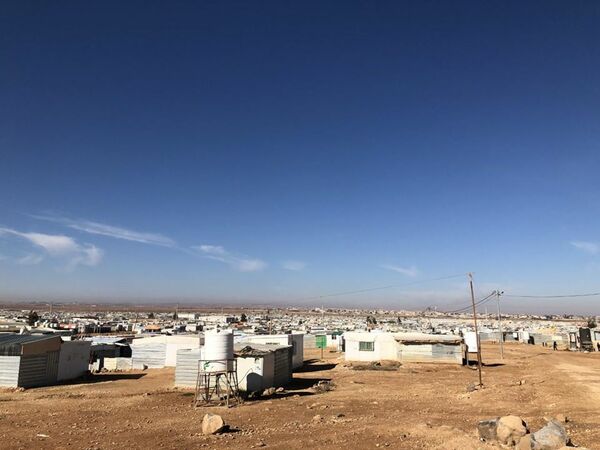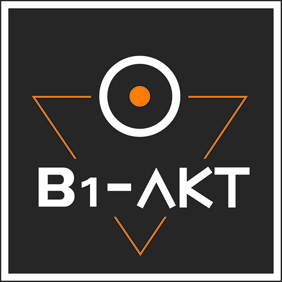
20 Jun Joining forces with AUS-American University of Sharjah
B1-AKT outlines the strategic partnership with both Professor Becky Beamer and Doctor Gleason from AUS, both providing exceptional and inspiring work on academic research related to (1) factors influencing the psychological capital of migrant entrepreneurs and (2) the strategies used by migrant entrepreneurs to create something innovative out of readily available materials (a process referred to as “bricolage”, from the arts).
On short, Assistant Professor Becky Beamer (Dept. Art & Design) and Professor Kim Gleason (Dept. Finance) from the American University of Sharjah conduct a strong field research that sheds light on the entrepreneurial ventures and psychological capital of Syrian refugees living in Zaatari Camp in Jordan.
The refugees are building something from nothing and the researchers are intern building data and creative outputs (photographs, sculpture, and documentaries) for the purpose to inform, entertain, and change policy related to refugee communities. The mission of this research is to support UN SDG initiatives 4 (Education) and 8 (Decent Work and Economic Growth) for all.
Currently, we are working on 2 projects: first, combining the arts perspective and entrepreneurship literatures into a cross-functional research project regarding the migrants being trained through MIL and their ability to engage in entrepreneurial bricolage, and second, a case study about the Migrant Integration Lab initiative and its approaches to migrant training.
The first project involved in depth surveys of refugees being trained by MIL regarding the resource set they have access to as refugees. The second, requested by participants in a session of the Academy of International Business this June, examines how a non-profit organization (MIL) can advocate for a diverse population of refugees in Europe. We intend to publish both papers in peer reviewed academic papers.
The American University of Sharjah is a large, diverse university in the United Arab Emirates. The student population originates from many countries with large refugee communities in the MENA region, Europe, and the Subcontinent. It is in the strategic interests of the university to identify the factors that support entrepreneurship by migrant communities so that the countries hosting them are not as extensively burdened by the economic costs of integration.
The resulting documentary film can be viewed here:
